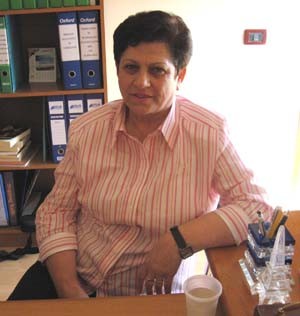
On first appearance, Vera Lesko seems like any gentle, good-humored, and loving Albanian mother. And she is. Yet, this countenance masks the determination that propelled her to the forefront of the battle against human trafficking in Albania. Her pioneering spirit and real life solutions have helped restore the lives of more than 1,600 trafficked Albanian girls and women.
Lesko began by working with a Tirana-based non-governmental organization on the issue of prostitution in Albania in 1997. She conducted over 500 interviews with women, bar owners, speedboat operators, and local officials in her native city of Vlora. The stories she uncovered revealed widespread and horrific abuse and exploitation of Albanian females.
“Until 1999, a lot of these people that I met with were not accepting the extent of trafficking,” said Lesko. To be sure, no one was caring for the traumatized victims either. So Lesko began sheltering victims of trafficking directly, using their detailed information to denounce local traffickers to the police at great personal risk to herself and her family.
“It was indispensable for the girls who were deported [back to Albania] to be accommodated somewhere,” she said. “The girls and women who were deported at that time used to stay in the police stations in very bad conditions.”
In December 1999, Lesko opened the Vatra Psychosocial Center, the country’s first center to provide assistance to victims of trafficking. When USAID launched a program to support and expand the anti-trafficking work of civil society and government institutions in Albania, Lesko and her center were one of the earliest partners.
Vatra (which means “hearth” in Albanian) is one of the four shelters USAID funds that assists victims of trafficking. While the program has a broad mandate, support for the Vatra Center’s work is a testament to the project’s ultimate aim – to prevent trafficking and help victims along the road to healthy lives.







Comment
Make a general inquiry or suggest an improvement.